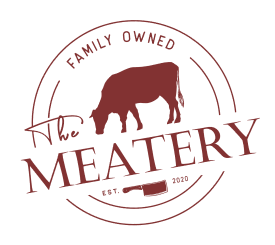Wagyu beef, often lauded for its unparalleled marbling and rich flavor, has become a culinary symbol of luxury. The term "Wagyu" itself originates from Japan, where it literally translates to "Japanese cow." As Wagyu gains popularity worldwide, a new breed has emerged: American Wagyu. But this raises the question—Is American Wagyu real Wagyu?
What is Wagyu?
To understand the debate, it's essential to first explore what Wagyu truly is. Wagyu refers to four specific breeds of Japanese cattle: Kuroge (Black), Akaushi (Red), Mukaku (Polled), and Nihon Tankaku (Shorthorn). These breeds are known for their genetic predisposition to develop highly marbled beef, which is tender, flavorful, and often melt-in-your-mouth delicious. The marbling is a result of intramuscular fat, which distributes evenly within the muscle fibers, giving Wagyu its distinctive taste and texture.
The History and Genetics of Wagyu
Wagyu cattle have a storied history in Japan, where they were originally used for agricultural purposes due to their strength and endurance. Over centuries, selective breeding practices honed the genetic traits that make Wagyu beef what it is today. The Japanese government has maintained strict regulations on Wagyu production, ensuring that the meat labeled as Wagyu meets the highest standards.
Genetic Makeup of Wagyu
The unique qualities of Wagyu beef are deeply rooted in the genetics of the cattle. The Kuroge breed, for example, has a higher number of intramuscular fat cells compared to other cattle breeds, which directly contributes to its renowned marbling. Furthermore, Japanese cattle farmers have employed meticulous breeding techniques to enhance these desirable traits over generations.
The Birth of American Wagyu
In the late 1970s and early 1990s, Japan began exporting a limited number of Wagyu cattle to the United States. American cattle farmers saw an opportunity to breed these cattle with domestic breeds, primarily Angus, to create a crossbred beef that combined the marbling and tenderness of Wagyu with the robust beefy flavor of Angus. This was the birth of what we now know as American Wagyu.
F1 Genetics and Crossbreeding
The American Wagyu beef industry often revolves around the F1 generation—cattle that are 50% Wagyu and 50% another breed, typically Angus. The idea behind this crossbreeding was to create a product that maintained the highly sought-after marbling of Wagyu while being better suited to American agricultural practices and consumer preferences.
The Science of F1 Wagyu
The F1 generation is created by breeding a purebred Wagyu bull with an Angus cow. The resulting offspring inherit half of their genetic makeup from each parent, blending the qualities of both. While not 100% Wagyu, these cattle still carry the genetic markers that contribute to the superior marbling and tenderness associated with Wagyu beef.
Crossbreeding has continued beyond the F1 generation, leading to varying percentages of Wagyu genetics in American cattle. This has resulted in a wide range of products being marketed as "Wagyu," from 50% to 100% Wagyu genetics.
Is American Wagyu Real Wagyu?
The debate over whether American Wagyu is "real" Wagyu hinges on the purity of genetics. Some purists argue that only 100% Wagyu cattle, born and raised in Japan, should be considered true Wagyu. However, the reality is more complex.
The Argument for Authenticity
Proponents of American Wagyu argue that the term "Wagyu" should refer to any beef that has inherited the genetic characteristics of the Japanese breeds. While crossbreeding introduces other traits, the essence of Wagyu—the marbling, tenderness, and flavor—remains intact in American Wagyu. Moreover, the crossbreeding process allows for greater adaptability and affordability, making Wagyu more accessible to consumers.
The Importance of Genetic Disclosure
One of the critical issues in this debate is transparency. Consumers should be informed about the genetic makeup of the Wagyu beef they are purchasing. Clear labeling, indicating the percentage of Wagyu genetics, would help buyers make informed decisions and set realistic expectations about the product.
Lax Regulation and Its Implications
Currently, the regulation surrounding the labeling of Wagyu beef in the United States is relatively lax. Unlike in Japan, where the term "Wagyu" is strictly controlled, American beef producers have more leeway in how they market their products. This can lead to confusion and potentially misleading claims about the authenticity of American Wagyu.
The Quality of American Wagyu
Despite the debates about genetics, there is no denying that American Wagyu offers a unique and high-quality beef experience. Many chefs and consumers praise it for its balance of flavor and marbling, as well as its ability to adapt to various culinary techniques.
Comparative Taste and Texture
When it comes to taste and texture, American Wagyu often strikes a balance between the extreme marbling of Japanese Wagyu and the robust flavor of traditional American beef. This makes it a versatile choice for a range of dishes, from steaks to burgers.
Culinary Versatility
American Wagyu's unique composition makes it suitable for a variety of cooking methods. Whether you're searing it on a grill, slow-cooking it for tenderness, or using it in gourmet burgers, American Wagyu delivers a culinary experience that is distinct from both traditional American beef and Japanese Wagyu.
The Economic Impact of American Wagyu
The American Wagyu industry has grown significantly over the past few decades, contributing to both local economies and the global beef market. By creating a product that is both premium and accessible, American Wagyu has carved out a niche that attracts a diverse range of consumers.
Consumer Perception and Market Trends
The perception of Wagyu as a luxury product has helped American Wagyu gain traction in the market. As more consumers become aware of its unique qualities, the demand for American Wagyu continues to rise. However, with increased demand comes the responsibility to ensure that consumers understand what they are purchasing.
The Future of American Wagyu
As the American Wagyu industry continues to evolve, the future looks promising. Advances in breeding techniques, coupled with increased consumer awareness, are likely to shape the trajectory of this market. However, with growth comes the need for clearer regulation and more stringent labeling practices to maintain the integrity of the product.
Final Thoughts
So, is American Wagyu real Wagyu? The answer is yes, but with a caveat. While American Wagyu may not be 100% Japanese Wagyu, it retains the essential qualities that make Wagyu beef so special. The crossbreeding process has produced a product that is both unique and true to the Wagyu tradition, offering consumers a taste of luxury that is more accessible and adaptable to various culinary contexts.
However, it is crucial for producers to be transparent about the genetic makeup of their beef, allowing consumers to make informed choices. Clear labeling and stricter regulations will help maintain the authenticity and reputation of American Wagyu in the global market.
At The Meatery, we are proud to offer Purebred American Wagyu that meets the highest standards of quality and is 93.75% Japanese Wagyu genetics. We firmly believe we offer the finest American Wagyu in the USA.
Whether you're a culinary enthusiast, a professional chef, or simply someone who enjoys the finer things in life, American Wagyu offers a dining experience that is truly unparalleled. Treat yourself to the best—because when it comes to Wagyu, you deserve nothing less than perfection.









